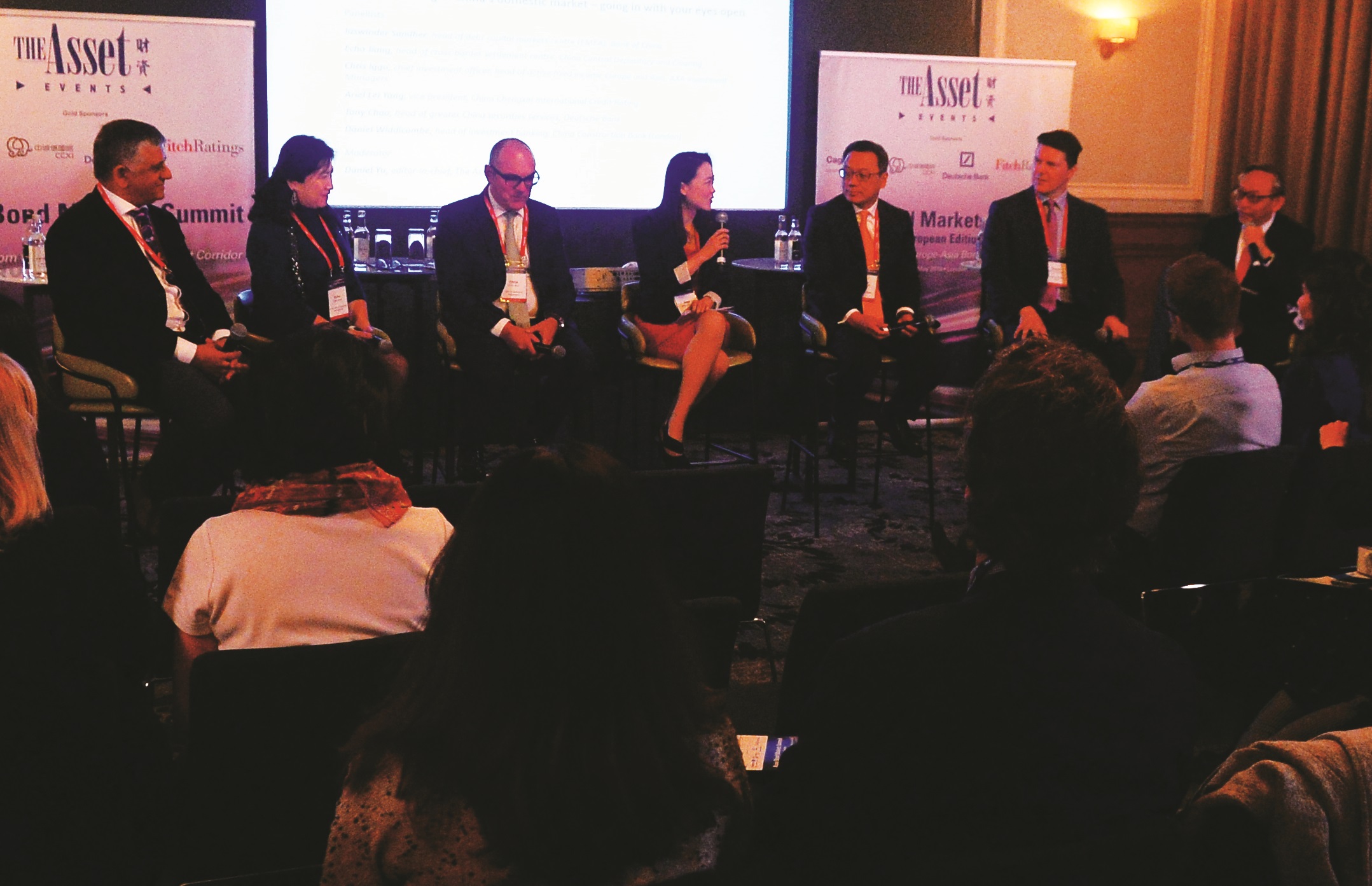
In the last five years, China has rapidly introduced reforms within its capital markets making it easier for foreign investors to go onshore. From the establishment of the Shanghai-Hong Kong Stock Connect in 2014 to the Bond Connect 2017, these schemes, in addition to QFII (qualified foreign institutional investor) and RQFII (renminbi qualified foreign institutional investor) programs, have supported the opening up of the Chinese onshore market to foreign investors.
However, not many foreign investors are investing when it comes to China, with some opting for a wait and see approach, according to speakers at a panel session at The Asset’s Asia Bond Markets Summit – European Edition held in London this year.
“Foreign investors are interested in China but they are not investing. That interest has been growing in recent years, however it is a slow process,” shares Chris Iggo, chief investment officer, fixed income at AXA Investment Managers. “I think the macroeconomic environment is holding people back from entering China. It takes a lot of education to get foreign investors interested in the market before they pull the trigger.”
Getting the right information is key for first-time foreign investors looking at China, such as advice on what type of foreign investor scheme works best for them. “Obviously with all the different types of connect programs, it creates a lot of confusion especially for the first-time investors in China. You need to look at what are your product structures and what you intend to do over there,” says Tony Chao, head of Greater China security services at Deutsche Bank.
For AXA, a major consideration regarding an investment channel is foreign exchange hedging, according to Iggo. “Our dedicated China fund is a renminbi fund so we do care about the foreign exchange risk. I think Bond Connect going into the future will be the more preferred option in which foreign exchange hedging looks to be more straightforward,” he says.
Aside from the challenge of figuring out which investment scheme works best for foreign investors, speakers also shared that the liberalization of the repo market to all foreign investors could serve as a catalyst to get more foreign investors into the market. Currently, only a handful of financial institutions such as renminbi settlement banks and central banks are able to access the repo market that enables investors to add leverage to their bond investment. “The PBOC [People’s Bank of China] will think about the repo market and how it could be accessible to all foreign investors instead of some investors,” highlights Echo Jiang, head of the cross-border settlement centre at China Central Depository and Clearing (CCDC).
Other factors holding foreign investment back from onshore China include the current lack of liquidity, which several members of the audience cited as a top concern. “I believe issuers such as China’s Ministry of Finance and policy banks have already realized that issue and they want to have more reissuance of the existing bonds, which would be easier for foreign investors,” explains Jiang.
Relying on domestic Chinese rating agencies for credit clarity is also a key issue for investors unfamiliar with China, given that a significant number of credits are rated triple A. This makes it hard for foreign investors to make strategic decisions about their portfolios. While the overall credit rating of an onshore Chinese company is important, Ariel Lei Yang, vice president at China Chengxin International Credit Rating, encourages foreign investors to not “just look at the rating results”, but “to read our reports.”
Speaking about China’s rating agency market, Yang explains that “the high concentration of high ratings is the reality and that’s going to continue for quite some time. In China all the rating marks are set according to the government’s standard. We have a ‘golden standard’ financial committee that sets ratings so you won’t see different ratings from Chinese rating agencies.”
For foreign issuers on the other hand, interacting with Chinese rating agencies is a must if they are looking to raise funds from onshore Chinese investors via a panda bond. “For multinational corporates they have their own established ratings, but they understand that when they go into China they need to play by the rules of the domestic market and that they will be accessed by a domestic credit rating agency,” says Daniel Widdicombe, head of investment banking at China Construction Bank (London). “In about four weeks you can get a rating.”
However, despite the growth of the asset class since it was first introduced in 2005, panda bonds are still a niche product used either for a genuine need for onshore renminbi financing or as a symbolic exercise. The latter was the case when the Republic of the Philippines issued a 2.5 billion-yuan (US$360 million) panda bond in May 2018, the second such offering from the sovereign.
Whether you are a foreign investor or issuer, there is little doubt that China will continue to become a significant factor in the years to come. Following the announcement of the inclusion of Chinese bonds in the Bloomberg Barclays Global Aggregate earlier this year, investors will need to soon make arrangements on how they approach potential investment in China.
“If China internationalizes fully, 30% of the world outside of the US will be basically China. You can ignore it and say it’s not transparent or you could invest in it, in which case at the moment the only way to invest in it is to have local knowledge,” emphasizes Jaswinder Sandher, head of EMEA, debt capital markets at Bank of China.





.jpg)
.jpg)


